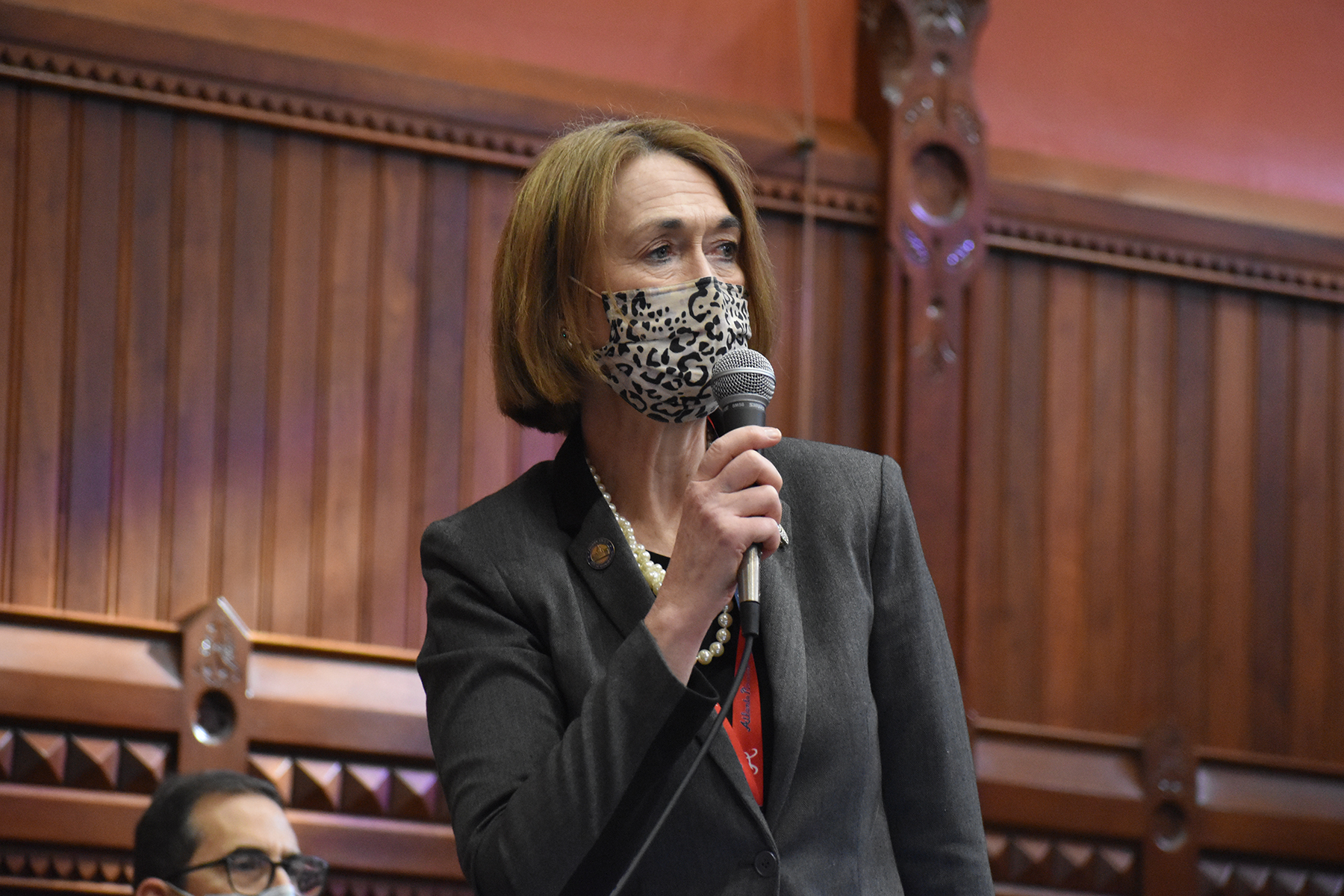

HARTFORD – State Representative Holly Cheeseman, who serves as Ranking Member of the Finance, Revenue and Bonding Committee, supported legislation to provide tax incentives for qualified data centers to build and operate in Connecticut.
Data centers are dedicated buildings that house computer systems and data storage systems which are critical infrastructure for many businesses.
The legislation, HB 6514, “An Act Concerning Incentives for Qualified Data Centers to Locate in the State,” would authorize the Department of Economic and Community Development (DECD) to offer tax incentives to data centers that locate their business in Connecticut and make minimum investments. The bill provides for 20 and 30 incentive periods depending on the size of investment and offers relief from certain taxes on equipment, property taxes, and requires the business enter into a host fee agreement with any town they locate in.
Rep. Cheeseman commented, “Data centers can directly create upwards of a thousand jobs during construction and provide fifty to seventy-five long-term high-paying information technology jobs. Once built they provide critical infrastructure for many secondary businesses.”
At a public hearing on the legislation, the bill received broad support from business advocates, economists, and labor leaders.
Tony Sheridan, President and CEO of the Chamber of Commerce of Eastern Connecticut wrote, “Connecticut should capitalize on its strong assets of a highly educated workforce, proximity to New York City and Boston, and focus on technology and innovation. The flexibility of the data center industry means this legislation could benefit any community in the state, urban or rural.”
Fred Carstensen, Director of the Connecticut Center for Economic Analysis noted, “Critically, this legislation establishes a policy that creating a common framework for all interested investors; it does not make the mistake that has so often characterized Connecticut’s failed approach to economic development: cutting deals with individual companies.”
In written testimony submitted to the Finance Committee, the President of the New London-Norwich Building Trades Council Keith Brothers argued, “one of the most compelling aspects of this legislation is the fact that thousands of skilled building trades workers will be able to find jobs across the State while at the same time improving Connecticut’s data storage infrastructure.”
Recent tax proposals in such as the proposed financial transaction taxes in New Jersey, have opened opportunities for Connecticut to attract these businesses from other states.
“This is a great opportunity to rebuild our state’s competitive advantage,” said Rep. Cheeseman. “Connecticut has lagged behind the country when it comes to job creation and wage growth. Even before the pandemic, we had yet to recover all the jobs lost in the 2008 recession, while neighboring states added jobs and grew household incomes. We cannot afford business as usual, we need to become the land of disruptive habits and attract the jobs and industries of the future.”
The legislation was passed 133-13 on a bi-partisan basis and will head to the State Senate for a vote.
